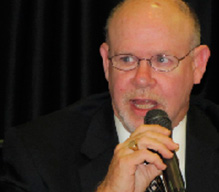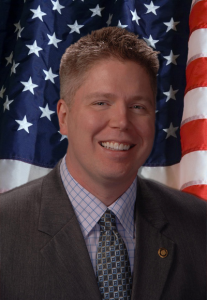JEFFERSON CITY, Mo. — Labor unions in Missouri are largely neutral on the Affordable Care Act, or “Obamacare,” and its impact on their members as AFL-CIO delegates continue to negotiate in Washington D.C. with officials from President Barack Obama’s administration.
The negotiations could yield results soon as early as next week as the president is set to speak to the national AFL-CIO convention in Los Angeles.
“I can’t discuss the specifics of those negotiations, but I can tell you [President Obama] is coming to the convention and I’m sure he will want to address this issue,” Missouri AFL-CIO President Hugh McVey told The Missouri Times. “As an organization, we are supportive [of Obamacare] but some of our member unions have some concerns and we’re going to try to address those.”

Some labor unions have shied away from Obamacare in the past few months.
Last month, Terry O’Sullivan, President of the Laborers International Union of North America, penned a letter to the president and members of Congress about his concerns that the law could have “destructive” consequences.
The International Brotherhood of Teamsters and the United Food and Commercial workers wrote a joint letter in July with similar concerns, and the International Brotherhood of Electrical Workers is also opposed to the law. St. Louis IBEW representatives did not immediately respond to requests for a comment.
Other labor organizations, like the Greater St. Louis Labor Council, are “neutral” on the law. Council President Bob Soutier told The Missouri Times that they were in a “wait and see” mode.
“Once our affiliated unions learn more about it, I’m sure they’ll want to take a position on it through the Council,” Soutier said. “A majority of our members have healthcare as part of a union, so we’re going to wait and see how it affects us. We aren’t worried about benefits changing, but some concerns about cost or being taxed on certain benefits, that’s something I could see becoming a problem, depending on how it works out.”
Unions have expressed concerns largely related to certain regulations that could result in a tax liability for union members with generous or “Cadillac” health care plans. A new 40 percent levy on the plans, which some unions say will occur as a result of the ACA, has pushed some unions away from the law and encouraged some to change their plans to higher-deductible plans in order to avoid the new tax.
Other regulations, like the prohibition of multiemployer healthcare plans — common among unionized construction workers — could result in taxes or fees unloaded onto union members unfairly, critics say.

Rep. Jeff Roorda, D-Barnhart, is the business manager for the St. Louis Police Officer Association, a union affiliated with the Fraternal Order of Police. Additionally, Roorda is a member of the board of the St. Louis Labor Council, which he said has had a lot of discussions about new regulations associated with Obamacare.
“We’ve had a lot of presentations and a lot of raw information on it,” Roorda said. “But right now, I haven’t heard anything from labor in my district against the Affordable Care Act outright. Most of the labor unions are feeling their way through a dark room on this to see what ultimately ends up happening.”
Roorda said he personally supports some elements of the ACA, but also said he has large concerns about some of the regulations buried in the bill. He said he was “optimistic,” that the law would ultimately lower healthcare costs, particularly for his police officer members, but did not describe himself as a supporter of the ACA in its entirety.
“Some elements of that legislation I really like, such as prohibiting denying coverage based on a pre-existing condition, or allowing kids to stay on a parent’s health care plan, I think those are wise,” Roorda said. “But some of these regulations are tricky and I’m disappointed we weren’t able to ultimately get a better bill.”
Jeff Aboussie, Secretary Treasurer of the St. Louis Building and Construction Trades Council, said the law would be an “expensive endeavor” for unions with health and welfare plans.
“I’m not sure it’ll fare well with some of our members,” Aboussie said. “It could become costly to implement, as they view Cadillac plans as being taxable after 2015 or so, a lot of rank and file members are placed in a difficult position.”
Aboussie said that he didn’t have concerns about a reduction or change in benefits, but about ballooning costs. While he said healthcare costs could ultimately go down over time as a result of the ACA, the implementation could be “potentially devastating.”
“This isn’t about benefits, it’s about the cost,” Aboussie said. “This is something that should have been figured out long before know, something that was buried in one of the many pages of this bill that I think people just didn’t know about it. It was so vague that a lot of people in organized labor would have pushed back if we had known the details.”
Collin Reischman was the Managing Editor for The Missouri Times, and a graduate of Webster University with a Bachelor of Arts in Journalism.



